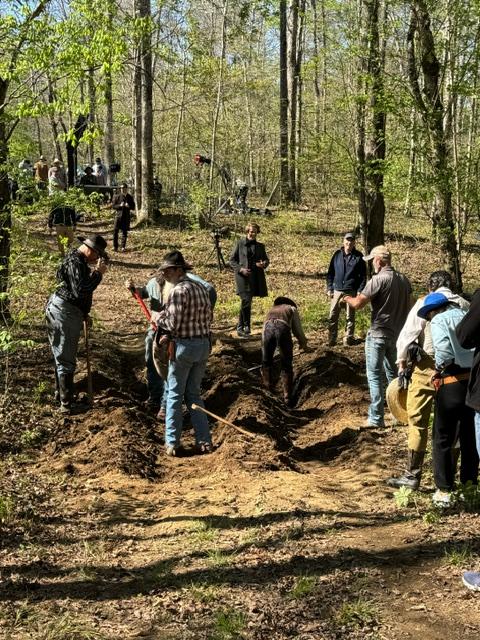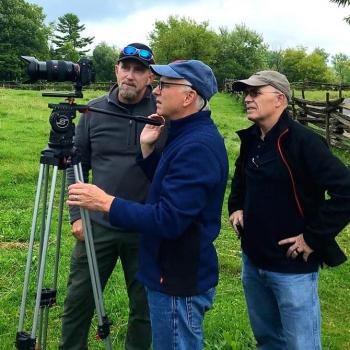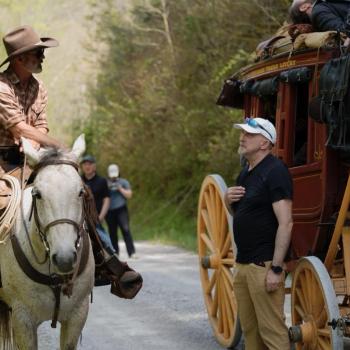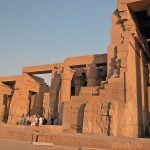
I’m gratified to report that Jeffrey Mark Bradshaw, the Interpreter Foundation’s Vice President for Special Projects, is headed at this very moment to Cotonou, Benin, in west Africa, where he will join with a few associates for further work on the Foundation’s Not By Bread Alone film project, on which see here and here. They will be working there in Benin and, thereafter, in Rwanda, in Kenya, and, once more, in the Democratic Republic of the Congo. There are stories from the Church in Africa that members worldwide should know.

I want to share a few more passages that I recently marked while reading the book
People who grow up in different cultures see the world differently—sometimes on the most elemental level. Let me give you some examples. Between 1997 and 2002, diplomats to the United Nations didn’t have to pay fines on any tickets they might acquire by parking illegally on New York City streets. Basically, they got free “park where you want” permission. People from low-corruption cultures, however, still refused to break the rules. Diplomats from the United Kingdom, Sweden, Canada, Australia, and a few other similar nations got a total of zero parking tickets during these five years. Meanwhile, diplomats from countries that had higher tolerance for corruption and rule breaking (You got to do what you got to do to feed your family) took full advantage of the regulation. Diplomats from Kuwait, Albania, Chad, and Bulgaria accumulated more than one hundred tickets per diplomat. They saw the situation differently, and it’s important to emphasize that it’s not because some individual diplomats were more honest or less honest than others. It’s because some were descended from people who’d grown up in places where it made sense to follow the establishment’s rules. Other diplomats’ ancestors grew up in places where perhaps there was colonialism or oppression or autocracy, and the establishment’s rules were illogical or even immoral, and so it made sense to break the rules when you could. Each person saw the world in a way that made sense according to their ancestors’ circumstances. (237)
The evolutionary biologist Joseph Henrich wrote a book called The WEIRDest People in the World. In it, he makes the point that those of us in our Western, Educated, Industrialized, Rich, and Democratic culture are complete outliers when compared to most other cultures in world history. For example, when people in our WEIRD culture get married, they tend to go off and set up their own separate household. But that is the dominant pattern in only 5 percent of the twelve hundred societies that have been studied. We often live in nuclear families. That’s the dominant family mode in only 8 percent of human societies. We have monogamous marriages. That’s predominant in only 15 percent of societies. And so on and so on. (238)
In a classic 1972 study, students from Indiana and Taiwan were given groups of three things and asked which two of the three go together. When shown pictures of a man, woman, and child, the American kids tended to put the man and woman together, because they are both adults. The Taiwanese kids tended to put the woman and child together because the mother takes care of the baby. When shown pictures of a chicken, a cow, and grass, the American kids put the chicken and cow together because they are both animals. The Taiwanese kids put the cow and the grass together because a cow eats grass. In these and many other cases, the Americans tended to sort by categories and the Taiwanese tended to sort by relationships. (239)
Research by Alberto Alesina, Paola Giuliano, and Nathan Nunn found that people who are descended from those who practiced plow-heavy agriculture tend to live in cultures that have strongly defined gender roles, because it was mostly men who drove the plow. On the other hand, people who are descended from those who did non-plow farming tend to have less defined gender roles. People descended from sheepherding cultures tend to be individualistic, because a shepherd’s job requires him to go off on his own. People descended from rice-farming cultures tend to be very interdependent, because everybody has to work together to raise and harvest rice. One researcher in China found that the divorce rate for people in historic wheat-farming regions was 50 percent higher than the divorce rate for those from historic rice-farming regions. (240)
For further illustrations of his point in this context, Brooke recommends the 1989 book Albion’s Seed: Four British Folkways in America (1989), by the retired Brandeis University historian David Hackett Fischer. I’ve long had it on my mind, though I haven’t yet read it. Fischer’s Historians’ Fallacies: Toward a Logic of Historical Thought (1970) is an absolute treasure.

You might enjoy this new article from the Filipino magazine BusinessMirror. I did. It is based at least partially on an interview with President Dallin H. Oaks and Sister Kristin Oaks, the occasion for which was their visit to the Philippines to dedicate the new temple in Urdaneta: “Latter-day Saints new temple to serve 200,000 members around Pangasinan”
Finally, I want to wish a rather “happy Mother’s Day” to all those out there to whom the wish properly applies. My wife certainly deserves better thanks than she receives, and I’m betting that some of you do, too. I cannot begin to repay the debt that I owe to my own mother and to my wife.













